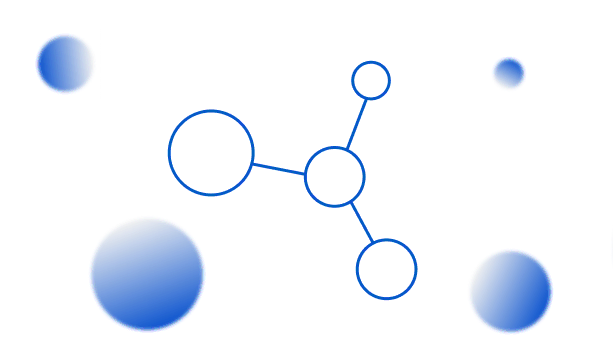
DESUTION
20/09/2024

20/09/2024
You've taken the leap to start your own business. You've worked tirelessly to grow it, attracting your first clients, managing orders, and seeking new opportunities. However, as your business grows, managing customer relationships, tracking sales, and coordinating daily tasks become increasingly complex.
At this point, someone tells you that you need a CRM. But what is a CRM? Why is it important for your business? How do you choose the right one for you? Let’s explore these questions so you can understand how a CRM can be the foundation for your business growth.
A CRM, or Customer Relationship Management, is more than just software; it’s a comprehensive strategy that allows businesses to manage and analyze all interactions with clients and prospects throughout their lifecycle. From the first contact to customer retention, a CRM centralizes key client information in one place, facilitating sales management, customer service improvement, and building strong, lasting relationships. This complete view of the customer drives more strategic decision-making, resulting in sustained and effective growth.
When starting a business, many companies manage their client relationships using basic tools like spreadsheets or even notes, which may suffice in the early stages. However, as the business grows and the customer base expands, these methods become inefficient and disorganized. This is where a CRM becomes an essential tool.
A CRM not only helps you organize your customer data in one place but also automates critical processes that would otherwise consume valuable team time. It analyzes behavior patterns, helping you anticipate needs and provide a personalized service, while giving your entire team a clear and up-to-date view of each client’s needs and preferences, facilitating informed decision-making and service personalization.
Specifically, a CRM is a strategic tool that provides multiple benefits, improving all aspects of customer management and business development. Here's more information:
Now that we understand what a CRM is and how it can benefit your business, it's important to know the different types of CRM available, as it’s a highly versatile tool that can adapt to the specific needs of each business.
In today's market, options range from simple and free solutions, ideal for beginners in the CRM world, to more robust and comprehensive platforms like Dynamics 365, which not only offer full customer relationship management but also integrate with other Microsoft tools, making them a powerful and scalable solution. The type of CRM you choose will depend on your business needs.
There are two main categories of CRM:
Once you have selected the right CRM, proper implementation is key to maximizing its potential. The first step is migrating your data, ensuring all contacts and records are organized and centralized within the system. This process should be done carefully to avoid losing valuable information. Then, automated workflows are configured to optimize routine tasks such as email follow-ups, sales assignment, and scheduling automatic reminders.
A CRM is not a static tool. Its success depends on a well-defined implementation plan that sets goals, defines the processes to be automated, and establishes metrics to measure its impact. Team training is essential to ensure everyone understands how to use the CRM strategically, beyond being just a data repository.

At Desution, we support you through every phase of the CRM implementation process. From planning and customization to ongoing training and post-implementation support, we ensure that the CRM is fully integrated into your company, improving productivity and enhancing customer relationships from day one.
The future of CRM is shaped by the evolution toward smarter and more personalized systems, driven by Artificial Intelligence (AI). Many modern CRM solutions already integrate AI, offering predictive analytics that help companies anticipate customer needs and improve their sales strategies. For instance, by analyzing historical data, AI can suggest which products or services are most likely to interest each customer, enhancing both conversion and satisfaction.
A key application of AI in modern CRMs is the use of intelligent chatbots and virtual assistants. These tools allow companies to offer 24/7 customer support, addressing common questions or providing information in an automated way. As machine learning algorithms continue to learn from each interaction, responses become increasingly accurate and personalized, improving the customer experience over time.
Integrated AI allows you to anticipate customer needs.
The development of custom CRMs has gained prominence, enabling companies to design systems fully tailored to their workflows and specific needs. This level of customization not only improves operational efficiency but also enhances the customer experience, as the CRM is designed to meet the unique requirements of its industry and market.
A CRM allows you to efficiently manage all interactions with your customers, optimizing processes from sales to post-sales service. Additionally, it facilitates data-driven decisions and helps you plan for the ongoing growth of your business in a proactive way.
At Desution, we offer comprehensive support for CRM implementation, from our custom solutions to platforms like Dynamics 365, in which we are already Gold Partners with Microsoft. With our experience, we guide businesses every step of the way, ensuring smooth integration and optimal return on investment. We always listen to your concerns, doubts, and requests to provide a solution tailored to your needs.